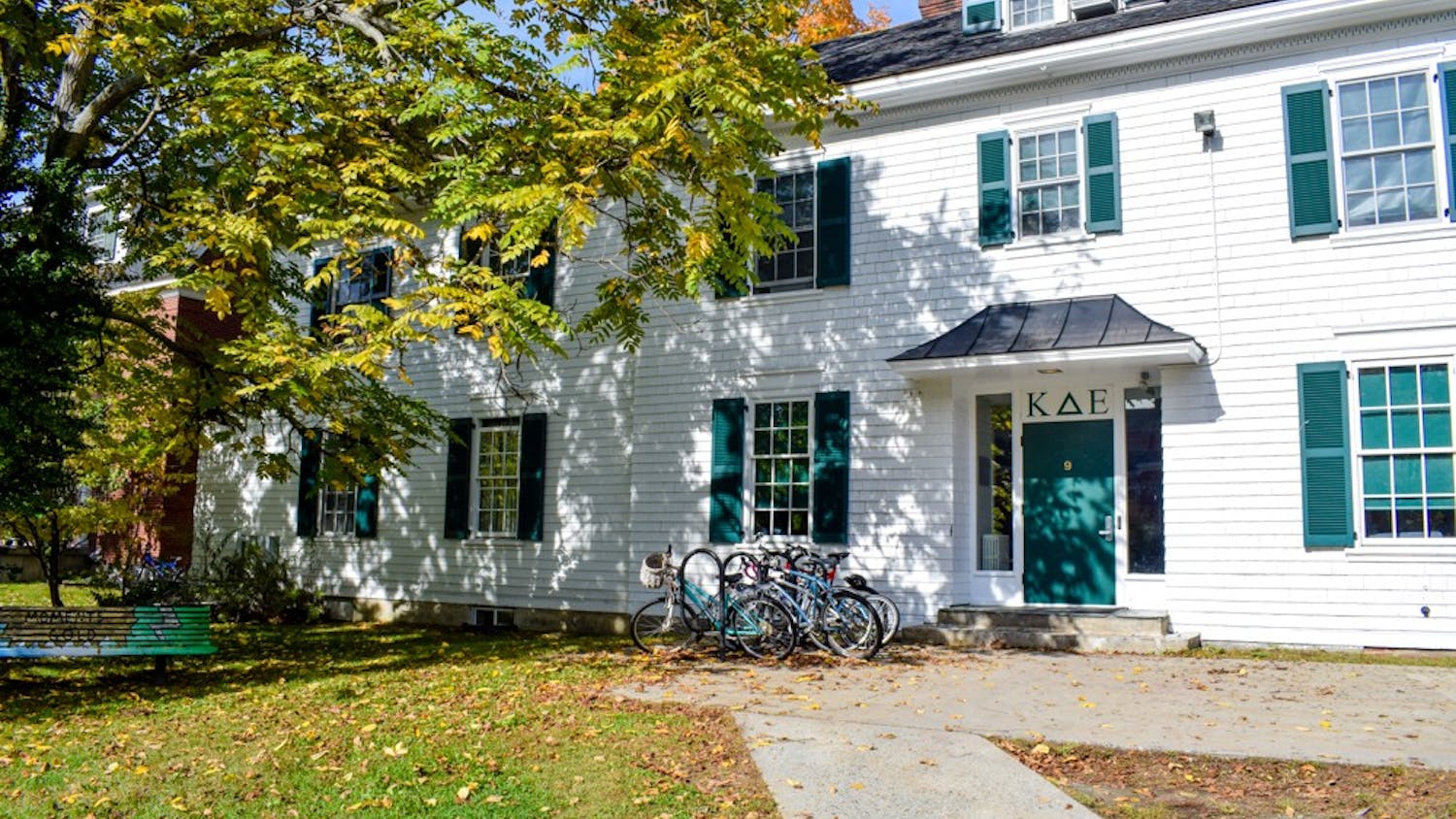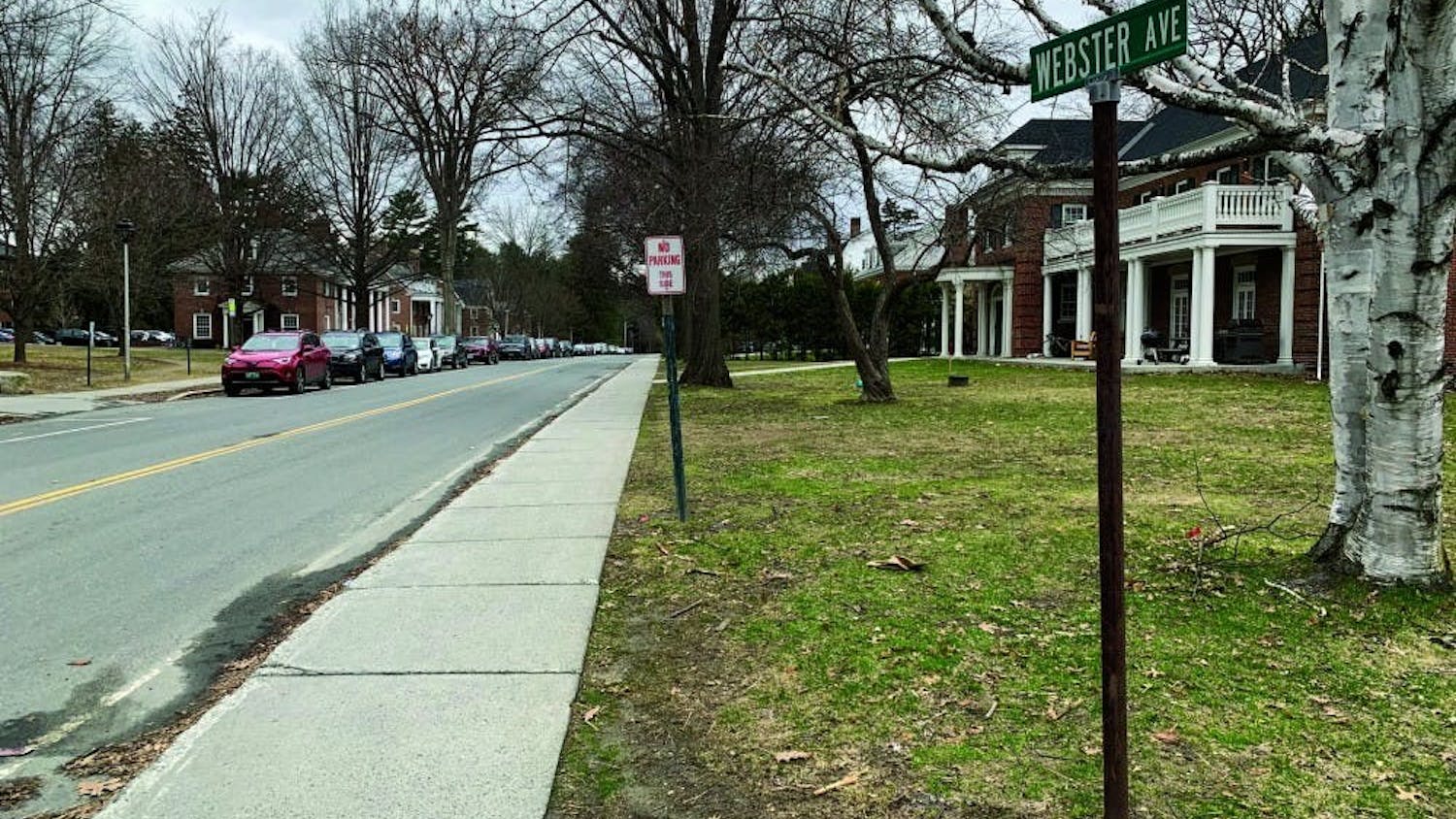During a normal spring term, Greek organizations across campus would open their houses to potential new members during “pre-rush” events designed to introduce them to the Greek system. This term, remote learning has required Greek houses to get creative with their offerings.
Both the Inter-Sorority Council and the Interfraternity Council are hosting informational Zoom calls for PNMs this term, according to respective presidents Mahalia Dalmage ’21 and Michael Saturno ’21. While sororities are required to host between one and three pre-rush events, fraternities are not required to host events but retain the option to do so.
Tippa Chan ’23, who said that she plans to participate in sorority pre-rush events, noted that the virtual events may create a “weird barrier in body language” and lack the “vibe of in-person [events], where you can swap in and out and talk to individuals.” However, she said that she is still looking forward to attending different events to get to know different sororities and is especially excited for one-on-one “sister dates,” a new offering this term in which PNMs can ask current members questions in a more intimate setting.
In addition to sister dates, Dalmage said that houses have chosen to host a variety of virtual events including panels, information sessions, brunches, drop-in study sessions and game nights. She said that while sororities have had “good energy” amid the transition to an online pre-rush program, the virtual format has posed the challenge of incorporating students in different time zones.
Chan said that when considering which pre-rush events to attend, she had to check which events would fit with her schedule, as she currently lives in Hong Kong.
“2 p.m. would be 2 a.m. in my time,” Chan said. She noted that despite the time difference, she is excited to “get to know the girls in the distinct sororities and see how they differ from [one] another” and see “what kind of vibe [she likes] the most.”
Bamlak Messay ’23, who said that she has signed up for both panels and sister dates, has been impressed by the way that houses “are getting really creative” with connecting with PNMs during the remote term. Through pre-rush events, she said that she looks forward to adding “a nuance to [her] social life” and meeting people she would not normally encounter on campus.
Zoë Chandra ’21, a member of Sigma Delta sorority, said that pre-rush is a “nice opportunity to see what sororities are like” without pressure to make any decisions. She said that while her sorority wasn’t able to hold “hands-on activities” like pong paddle painting for PNMs this year, they have “made the most of what [they] could do” over Zoom.
During Sigma Delt’s first Zoom session, PNMs were able to hear about the house, and then were split into breakout rooms with a few PNMs and at least one sister, Chandra said. She said that while she wishes PNMs had the opportunity to see the “actual, physical house,” she has been “impressed” with what her sorority’s rush chairs have organized.
Tori Bergstein ’22, director of formal recruitment for Alpha Phi sorority, said that virtual pre-rush events have gone “smoothly” for her house. APhi will offer sister dates and host a total of two Zoom panels, in which members will give information about themselves and answer questions. So far, 140 PNMs have signed up for the dates, all of whom will be matched with members to have 20-minute conversations over Zoom. According to Bergstein, APhi chose to host sister dates because they are “more personal” compared to panels where sisters are “talking at them.”
Bergstein said that while Zoom calls can lack personal interaction and be “less fun,” virtual events give PNMs “a little bit more flexibility to jump into different events if they want to hear from different houses.”
“We just want to do what we could to make connections and tell [PNMs] why we think APhi is great,” Bergstein said. “This situation upped the creativity and problem-solving.”
Clayton Howard ’21, president of Zeta Psi fraternity, said that while Zete has not “finalized any plans yet” regarding how to change pre-rush events to accommodate the remote term, the organization’s priority will be to “incentivize small group interactions.”
Howard noted that having Zoom meetings presents a challenge in replicating the casual setting of in-person events because they can feel “official” and “foreboding” with a “weird formality.”
“We [typically] run pretty chill rush events where people come and hang out and have pizza,” Howard said.
Dillon Ford ’20, a member of Zete, mentioned that on Zoom, only one person can talk at once, which can make group interactions difficult. He said that for now, Zete members have been focusing on introducing friends interested in rushing Zete to other brothers in the house.
Tulio Huggins ’23 said that he received an invitation to one fraternity’s virtual party through a member he knew, but he was unable to go. With more events planned, Huggins said that he hopes to get to know members of different frats and is glad that, given the current situation, he and other potential new members do not have to “lose a term of potentially getting to know people” despite being “miles away from each other.”
For both the individual house events and the ISC information sessions, Dalmage said that attendance has been high, noting that the online format has “allowed pre-rush events to be bigger than could be in person.”
Saturno said that the IFC’s formal information session — the first ever to be held during the pre-rush period — is scheduled to be held in early May. He noted that the IFC typically sponsors barbecues to welcome questions regarding the rush process and fraternities in general.
Alex Dent ’21, ISC representative for Kappa Delta sorority, noted that the virtual format has prompted houses to increase their social media presence. She said that Instagram and other social media platforms allow PNMs to “see what sisters do” on a day-to-day basis.
Despite the challenges posed by a remote setting, participants in the pre-rush process have learned to adapt over time and have found opportunities to connect with one another, Dalmage said.
“In the beginning, it was harder to figure out how to move it online,” she said. “With all hands on deck, now it’s been easy.”




